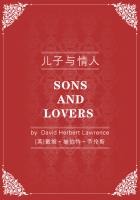32:法国电影作曲家再获奥斯卡提名A French composer was renominated for Oscar prize
06/03/2014
It's award season in the film world. Almost most of the attention is always on contenders for best actor or best film. There are many other awards to be won for sound, special effects and of course, music. The big stars in these fields are often rather overlooked, like the French composer Alexandre Desplat who's been nominated by the Oscar's academy six times in the past 80 years. Now you may not have heard of him, I bet you have heard of some of the films he's written music for, though, The Queen, The King's Speech, Argo. This year, he is nominated for creating Philomena, the real life story of an Irish woman's mission to track down her child stolen and adopted overseas. So is this his year?
'I became a film composer. And I heard music in films that were driving, emphasizing the emotions. And not only that, but these pieces of music, not only they've served the film, but when I go home, I could listen to it as a piece of music, as a pure piece of music and there is something there but that's really special. Good music works with good pictures.'
'Let's wonder about that, I mean, do you ever say to a director,'look, I understand exactly the emotion you are trying to evoke with these sequence of pictures, and I'm telling you the best thing to use for that is Mozart or Beethoven or some another, rather than something I've written'?'
'When I saw the King's Speech by Tom Hooper, Beethoven Second Movement of the Seventh Symphony, it was just perfect. And it was just nothing I could do to replace that piece. So I said to Tom,'Tom, this piece you will keep because it's just gorgeous and it makes the movie better.'So I'm not gonna compete with Ludwig van, you know.'
'And how often do you watch pic-tures and in desperation sit there on your own thinking, I mean, do you ever get writers'block?'
'No. The brain and the writing brain, I guess, the section where the writing comes from, if it's excited every day, it's like it's a muscle, that you just, you know, keep. And if you feed it regularly with readings and music you listen to, that just feeds your artistic sensitivity.'
译文:
现在是电影各大奖项揭晓的时节,几乎所有注意力都集中在最佳演员和最佳影片这两大奖项。其他奖项还涉及声音、特效,当然,还有音乐。这些奖项的幕后英雄通常都为人所忽视。在过去的80年中,法国作曲家亚历山大·德斯普拉曾6次获得奥斯卡提名。你可能没听说过他,但你一定听说过由他谱曲的电影,比如《女王》,《国王的演讲》,《逃离德黑兰》等。今年,他凭借电影《菲洛米娜》被再次提名。这部电影改编自真实的故事,讲述的是一位爱尔兰妇女寻找被强迫带走并在海外收养的孩子的故事。那么今年,德斯普拉会获得奥斯卡金像奖吗?
“我变成了一名电影作曲家。电影中的音乐对我来说是有驱动力并增强人类情感的。另外,这些音乐不仅服务于电影,而且可以作为纯粹的音乐供人们回家去听,这种音乐有种特别的感觉。好的音乐可以搭配好的画面。”
“我有一个疑问,您有没有对导演说过,‘我很理解你这一系列画面想要激发的情感,我告诉你,最好配上莫扎特、贝多芬或其他大师的音乐,而不是我写的那些音乐。’”
“我看汤姆·霍伯导演的《国王的演讲》时,觉得贝多芬第七交响曲第二乐章特别合适,配合画面堪称完美,再没有更好的选择了。所以我对汤姆说,‘汤姆,你得用这段音乐,因为它太好听了,而且让电影也更好看了。’我不会跟路德维希·冯·贝多芬竞争的。”
“那您会不会经常坐在那儿,看着画面苦思冥想?我的意思是,您有没有遇到所谓作曲家的瓶颈期?”
“没有。大脑,创作的大脑,灵感来源的区域,如果每天都能处于兴奋状态,那么它就会像人的肌肉一样,你只需保持。如果你经常阅读或听音乐,那么你的艺术敏感性就会得到提升。”
单词解析Word analysis
1. overIook[??v?'l?k]v.忽视
例句:It is easy to overlook a small detail like that.
那样的细枝末节很容易被忽略。
2. nominate['n?m?ne?t]n.提名,推荐
例句:I nominate John to represent us at the meeting.
我提议约翰代表我们去参加此次会议。
3. track[tr?k]v.找寻,追踪
例句:The dogs tracked the wolf to its lair.
那群狗追踪那只狼一直到它的巢穴。
4. evoke[?'v??k]v.唤醒,引起
例句:His appearance is bound to evoke sym-pathy.
他的外表肯定会引起人们的同情。
5. repIace[r?'ple?s]v.接替,取代
例句:I'm replacing Sue on the team.
我将接替队里的休。
6. bIock[bl?k]n.阻碍,障碍
例句:This incident is a major block to progress.
这次事件严重阻碍进步。
7. sensitivity[sens?'t?v?t?]n.敏感性
例句:It's a matter of great political sensitivity.
这是个政治敏感性很强的事情。
语法知识点Grammar points
1. Now you may not have heard of him, I bet you have heard of some of the filmshe's written music for, though, The Queen, The King's Speech, Argo.
“may not have+过去分词”,“可能还没有做某事”,属于情态动词现在完成时。
2. No. The brain and the writing brain, I guess, the section where the wri-ting comes from.
“where”引导一个定语从句,where属于关系副词,先行词是the section。
33:机器人发明者受到动物王国的启发Robot builders inspired by animal kingdom
17/02/2014
US scientists have unveiled a new breed of tiny robots, which were inspired by miniature creature such as termites. They've been put on display at the American Association for the Advancement of Science meeting in Chicago. And researchers say robots of the future are likely to resemble small animals rather than the humanoid butlers seen in science fiction. From the conference our science correspondent Pallab Ghosh reports.
'In the 1970s, this is how we imagine robots to be in the future. 40 years on, and this is how they've turned out, tiny robot ants, not dusting or ****** tea, but trying to find their way home. But why build robots based on ants?Their creator Professor Buffler Webb at the Edinburgh University explains.
'If you've ever tried to build a robot yourself, you cannot help but be amazed when you now look at an animal, even a very ****** animal and how well it interacts with the world, how many competences it has, how compound it is.'
'Professor Webb spent several weeks studying a type of ant in Spain. She was amazed that it could process complex visual information in its tiny brain. And so back at the lab, she reproduced it in robot form.'
'Ants are fantastic navigators. They remember what they see in the way that we might recognize what we see when we learn our way around a new city. But they do all of it with a brain that's smaller than the head of a pin and with very poor vision. And so we really are interested to try and understand and replicate their capabilities.'
Meanwhile, in Chicago, Professor Malcom Makaiva became enamored with another little creature.
'The inspiration is a group of fish that live in the rivers of the Amazon. And those rivers are very murky. So as a result they've had to evolve a different way to sense what they do as they generate a weak electric field around their body and they are able to navigate and they also communicate and hunt using that field.'
'So he took some back to his lab at Northwestern University in Chicago and he showed me how their remarkable natural electric fields work.'















